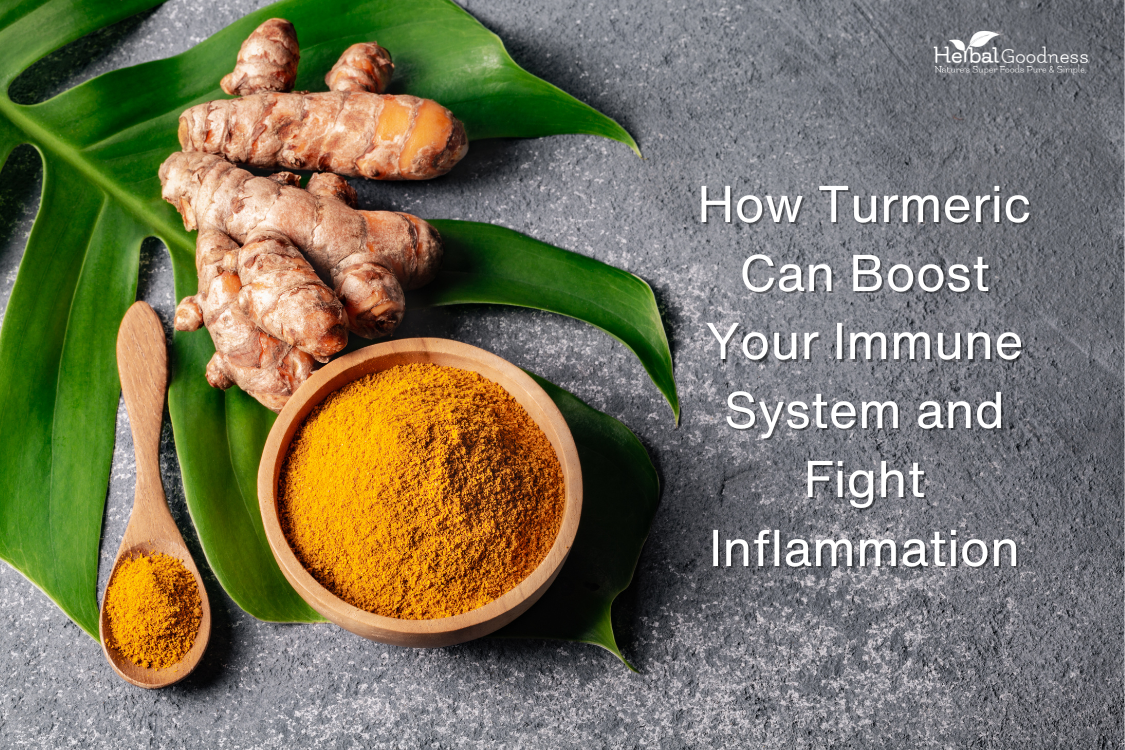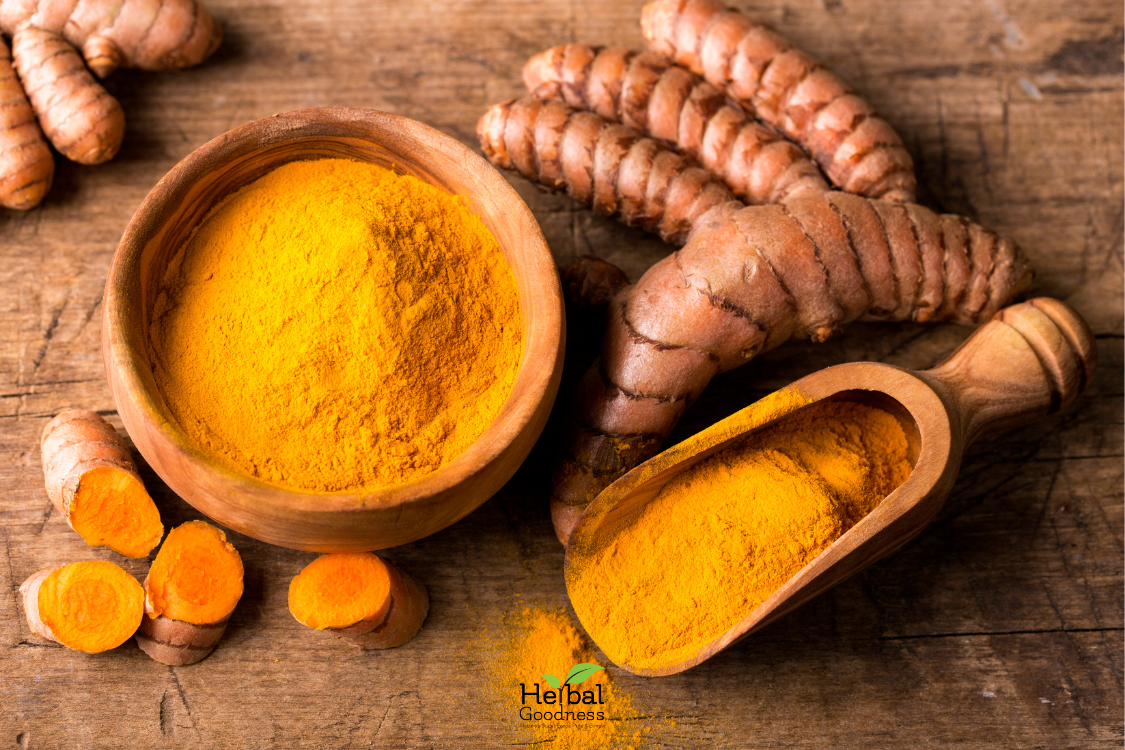
Turmeric is a spice that has been used for centuries in Asian cuisine and traditional medicine. It is derived from the root of the Curcuma longa plant, which belongs to the ginger family. Turmeric has a bright yellow color and a distinctive flavor that adds warmth and depth to dishes. But turmeric is more than just a culinary ingredient. It also has many health benefits that can help you improve your well-being and prevent various diseases. In this article, we will explore how turmeric can boost your immune system, and fight inflammation. We’ll also dive into its history, some interesting facts, and how to incorporate it into your daily routine.
The History of Turmeric
Turmeric is native to India and Southeast Asia, where it has been cultivated for over 4,000 years. It was first used as a dye, then as a food preservative and a cosmetic product. Hinduism and Buddhism revered turmeric as a sacred and auspicious substance, incorporating it into rituals, ceremonies, and festivals. People also treasured its medicinal properties, using it to treat wounds, digestive disorders, and skin problems.
Arab traders introduced turmeric to Europe in the 13th century, and it later spread globally through trade and colonization. Now, many cultures and regions use turmeric widely as a spice, supplement, and natural remedy.
The Benefits of Turmeric
Turmeric owes its health benefits to its active compound called curcumin which has been shown to have antioxidant, anti-inflammatory, and antimicrobial, properties, among others. Some of the benefits of turmeric include:
Boosts immune system:
Turmeric can help you boost your immune system and protect you from infections and diseases. Curcumin can modulate the activity and function of various immune cells, such as T cells, B cells, macrophages, and natural killer cells, and enhance their response to pathogens and antigens. Additionally, curcumin can inhibit the growth and spread of bacteria, viruses, fungi, and parasites, and prevent or treat infections such as colds, flu, bronchitis, and pneumonia.
Fighting inflammation:
Turmeric can help you reduce inflammation and pain in your body. Curcumin can block the action of various enzymes and proteins that are involved in the inflammatory process. It can help prevent or alleviate the symptoms of inflammatory conditions such as arthritis, rheumatoid arthritis, and osteoarthritis.

Improves brain function and mood:
Curcumin can cross the blood-brain barrier and affect the brain cells and neurotransmitters that are involved in memory, learning, cognition, and emotion.
Supports heart health:
Curcumin can lower the levels of cholesterol, and triglycerides, and prevent bad cholesterol, which can cause plaque formation and clog the arteries. Curcumin can also improve the function of the lining of the blood vessels that regulate blood flow and pressure. By doing so, curcumin can prevent or reduce the risk of cardiovascular diseases.
Enhance liver function and detoxification:
Curcumin can protect your liver from damage caused by toxins, drugs, alcohol, and infections, and stimulate the production of bile. Curcumin can also increase the levels of glutathione, which is a powerful antioxidant that neutralizes free radicals and supports the liver’s detoxification process.
How to Incorporate Turmeric into Your Daily Routine
There are many ways to enjoy the benefits of turmeric and make it a part of your daily routine. Here are some of them:
- Add turmeric to your food: You can use turmeric as a spice to flavor your dishes, such as curry, soup, rice, vegetables, meat, eggs, and salad. You can also add turmeric to your smoothies, juices, milk, yogurt, or tea. You can use fresh or dried turmeric root or turmeric powder.
- Turmeric supplements: You can take turmeric supplements in capsules, tablets, or liquid extract forms. However, you should always consult your doctor before taking any supplements. Especially if you have any medical conditions or are taking any medications.
- Apply turmeric topically: You can apply turmeric topically to your skin, hair, or nails. You can make your own turmeric paste, mask, or cream, by mixing turmeric powder with water, honey, yogurt, coconut oil, or other ingredients.
The Possible Side Effects of Turmeric
Turmeric is generally safe and well-tolerated by most people, but it may cause some side effects or interactions in some cases. Some of the possible side effects of turmeric include:
Digestive issues: Turmeric may cause stomach upset, nausea, diarrhea, or constipation, especially if taken in large doses or on an empty stomach. You can avoid or minimize these effects by taking turmeric with food, water, or milk, and by starting with a low dose and gradually increasing it.
Allergic reactions: Turmeric may cause allergic reactions in some people, such as skin rash, itching, swelling, or breathing difficulties. You should stop taking turmeric and seek medical attention if you experience any of these symptoms, or if you know you are allergic to turmeric or any of its components.
Bleeding risks: Turmeric may slow down blood clotting and increase the risk of bleeding, especially if taken with blood thinners, such as aspirin, warfarin, or heparin, or if you have a bleeding disorder, such as hemophilia or von Willebrand disease.
Hormonal effects: Turmeric may have estrogenic effects. This means it can mimic or interfere with the action of the female hormone estrogen. This may affect the menstrual cycle, fertility, pregnancy, or breast-feeding.
Conclusion
In conclusion, Turmeric is a spice that has many health benefits, especially for your immune system and inflammation. It can help you boost your immune system, prevent or treat various diseases and improve your well-being. However, turmeric may also have some side effects or interactions, so you should always be careful and consult your doctor before taking it. You can enjoy turmeric in different ways, such as adding it to your food, taking supplements, or applying it topically. Turmeric is a natural and powerful substance that can boost your health and happiness. Try it today and see the difference for yourself!


